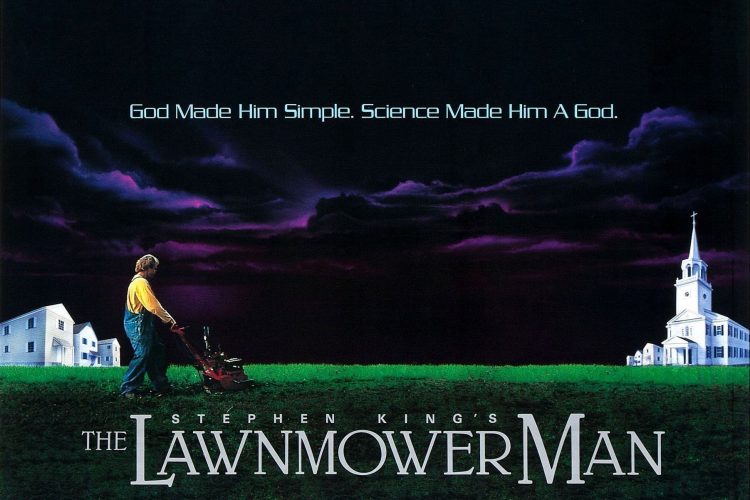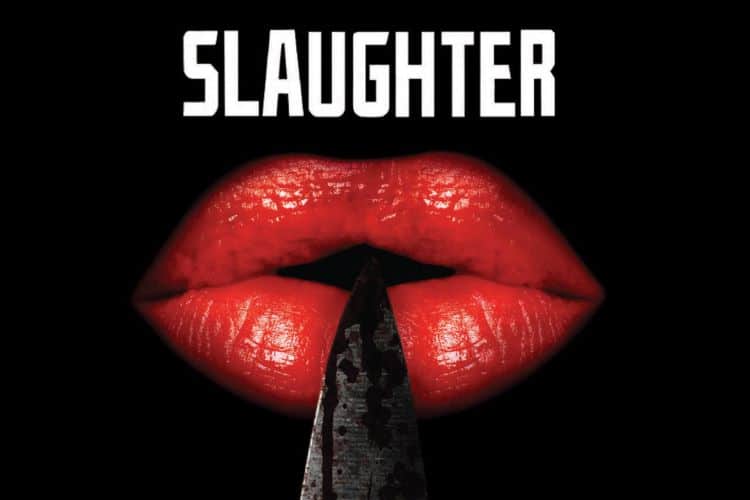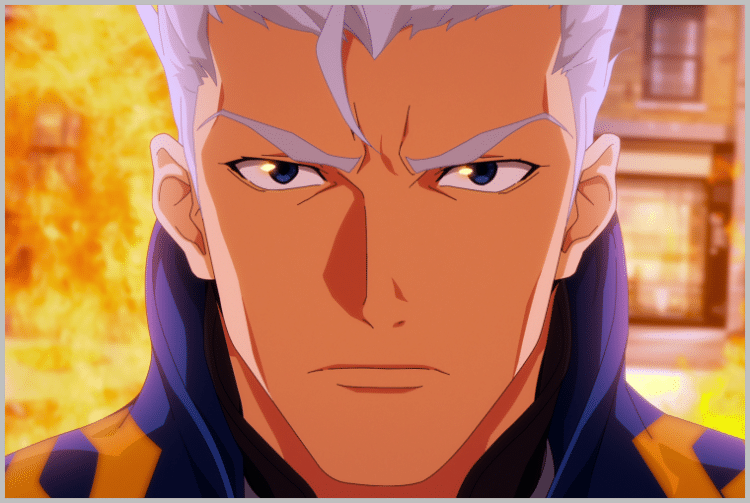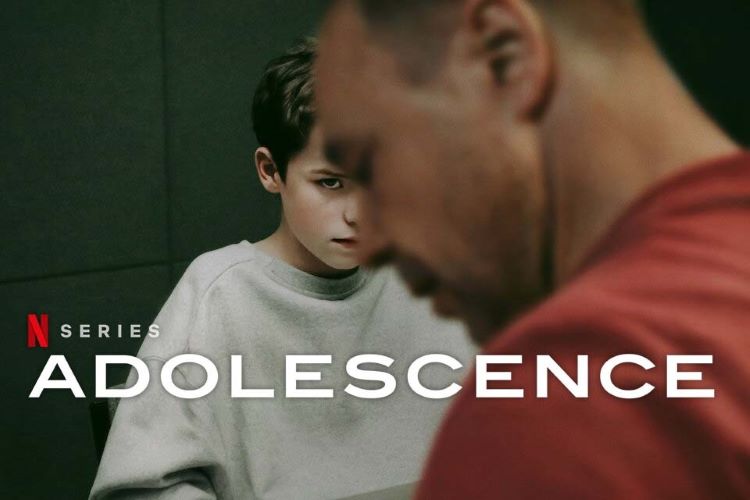“Lawnmower Man is in your head now.”
Main Cast: Jeff Fahey, Pierce Brosnan
Director: Brett Leonard
I guess, technically, THE LAWNMOWER MAN doesn’t belong on a list of Stephen King movies. Yes, it was originally called, on its theatrical release, Stephen King’s The Lawnmower Man, but anyone who’s read his original short story in the NIGHT SHIFT collection, then seen this movie, can tell you this movie has nothing to do with that story aside from one single line of dialogue. Later, King sued the makers of the film and had his name removed from any association with it.
And yet, this movie has still been considered a King movie by most fans since its release in 1992. So I’m including it in this series as well.
THE LAWNMOWER MAN is about Dr. Lawrence Angelo (Pierce Brosnan), who is developing a technology combining virtual reality with a new drug he’s created that can enhance intelligence. When the chimp he’s been experimenting on reacts badly to the drug’s rage-enhancing side effects and is killed, Dr. Angelo goes on hiatus from work, then decides to continue his experiments–sans rage-enhancers–on the man who mows his lawn, Jobe Smith (Jeff Fahey).
All is going very well at first. Jobe’s intelligence is growing by leaps and bounds. Soon, parts of his brain are being unlocked that Dr. Angelo hadn’t considered. Jobe is displaying telepathy and telekinesis. Dr. Angelo considers maybe he should stop using Jobe as his guinea pig, but by then it’s too late. He’s already talked to his boss, Timms, about using their labs, which in turn made his boss talk to HIS boss–in this case, The Director of DSI, The Shop (a King trope), played by Dean Norris–which has led Timms to switch out Angelo’s non-rage-enhancing drug with the Shop-sanctioned rage-enhancing version behind Angelo’s back.
By the time Angelo considers stopping the experiments, Jobe is already not only smarter than Angelo, but very angry. To satisfy his burning hunger for power, Jobe has decided to put himself into the virtual reality program and, from there, move outside into the “neural net”, the 1992 version of the internet. Once there, he’ll become a god to the people of the world.
Okay, first off let’s get this out of the way: this movie is silly. The only thing this movie had going for it in ‘92 was 1) King’s name and 2) the awesome computer visuals it used. Remember, this is 1992, when people were still impressed by cartoon-like computer graphics in their big budget movies. Now, SHARKNADO has better effects than this movie. But, it was 1992 and at that time this was cutting edge stuff. Unfortunately for THE LAWNMOWER MAN, it’s not 1992 anymore and nowadays this just doesn’t hold up.
Another problem is the over-abundance of characters, most of whom don’t matter. We first see that Angelo has a wife, but two scenes later she’s leaving him because he’s too focused on work. Why introduce her at all? Just make Angelo a bachelor from the start and save those few minutes of unnecessary story (from what I have read, Angelo’s wife has a larger role in the 33-minute longer Director’s Cut).
We’ve got a town gas jockey who torments Jobe, the priest who runs the church were Jobe was raised–who also torments Jobe–the owner of the lawn company where Jobe works (played by Geoffrey Lewis) and brother of the priest who runs the church were Jobe was raised. There’s Marnie, Angelo’s next door neighbor and eventual love interest for Jobe (played by Jenny Wright from NEAR DARK), there’s Peter, the young boy who lives next door to Dr. Angelo and is Jobe’s only friend, plus Peter’s timid mother and abusive father. There’s Timms, the Shop lackey boss where Angelo works, and The Director, who pays the bills.
That’s just too many characters, and most of them are simply fodder for Jobe’s eventual rage. The problem is none of them are developed to a point where they feel like anything more than that. Even Peter, Jobe’s friend, is just a place holder for when a scene needs him, but we never get the sense he’s a real person. In fact, what Peter and his obviously blue collar, just-getting-by family are doing living next door to Dr. Angelo and Marnie, both of whom are obviously very well off in their large houses and what seems like daily lawn service, is never explained either. Peter’s father drives a beat-up Camaro with rusty dents all over the side. He comes home at night, yells at Peter for leaving his bike outside, then opens the first of many beers. This guy is NOT paying for a house in the nice part of town. But the story demands they be there, so there they are.
Let’s talk about logic flaws. When Dr. Angelo is giving Jobe the safe injections, they’re green. When Timms swaps them out for the unsafe injections, they’re red. You’re telling me the brilliant Dr. Angelo, who created this amazing technology, can’t tell the difference between red and green? Sure, he may be red/green colorblind, but I’d think that would be a detail they’d want to make sure to mention at some point.
Later, Timms tells Angelo they’re going to fly to DC to meet with The Shop. Then, after an unfriendly confrontation, Angelo steals the car of one of The Shop men sent to kidnap him, and DRIVES back home. If driving there takes so little time, why did he need to fly? And if it’s so important The Shop bring him in, why weren’t they waiting at his house for him when he got there? Surely they could have flown there and gotten to the house well before him.
I put the blame for this stuff on writer/director Brett Leonard who, along with co-writer Gimel Everett, were given the Lawnmower Man title and told to write something and instead turned in an already-written script called CYBER GOD, with a few rewrites to make it SEEM like a King movie, when in fact it was anything but.
Then again, maybe this movie explains how someone who was doing big budget theatrical releases in 1992 wound up directing MAN-THING 13 years later, while Everett never wrote another screenplay after this.
The acting here isn’t terrible, I guess. Fahey plays the parts of simple Jobe and angry Jobe pretty well, considering he’s made to utter the phrase “CyberChrist” at one point, while Brosnan is Pierce friggin’ Brosnan and I’ve yet to see him in a role in which I thought he was unwatchable. I mean the man is the definition of Smooth, even when the role and the movie suck.
In 1992, THE LAWNMOWER MAN wasn’t a terrible movie. I remember seeing it in theaters and enjoying it quite a bit, for what it was. But now, over 30 years later, with the technology at our disposal, there’s just nothing about this that doesn’t feel very, very dated. In fact, much of the movie is, at this point, downright laughable. The things we thought were cool back in the day! Good lord.
If you’ve never seen THE LAWNMOWER MAN and are working your way through King’s back catalog, this is an easy pass. It’s not really even a King movie at this point, not in any sense that counts. It’s just another really bad sci-fi movie that wasn’t able to outlive the technology that made it. I wouldn’t waste time on this one.
If you’re looking for a faithful adaptation of the story, try this version from 1987.
King on Film
Word Processor of the Gods (1984)
A Return to Salem’s Lot (1987)
Sometimes They Come Back (1991)
The Shawshank Redemption (1994)
Children of the Corn III: Urban Harvest (1995)
Sometimes They Comes Back … Again (1996)
Children of the Corn IV: The Gathering (1996)
The Revelations of ‘Becka Paulson (1997)
Children of the Corn V: Fields of Terror (1998)

C. Dennis Moore is the author of over 60 published short stories and novellas in the speculative fiction genre. Most recent appearances are in the Dark Highlands 2, What Fears Become, Dead Bait 3 and Dark Highways anthologies. His novels are Revelations, and the Angel Hill stories, The Man in the Window, The Third Floor, and The Flip.






